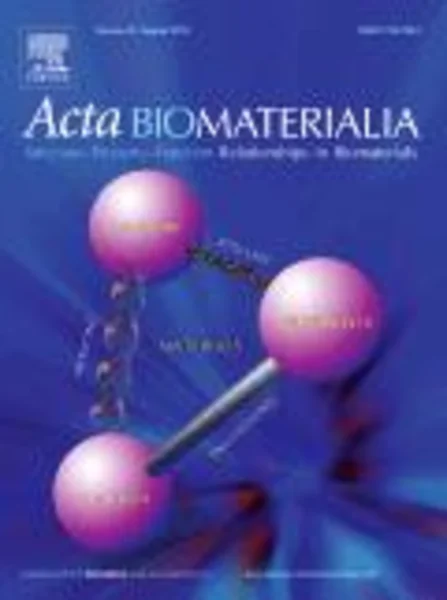-
karyotyping of human chondrocytes in scaffold-assisted cartilage tissue engineering
جزئیات بیشتر مقاله- تاریخ ارائه: 1392/01/01
- تاریخ انتشار در تی پی بین: 1392/01/01
- تعداد بازدید: 596
- تعداد پرسش و پاسخ ها: 0
- شماره تماس دبیرخانه رویداد: -
scaffold-assisted autologous chondrocyte implantation (aci) is an effective clinical procedure for cartilage repair. the aim of our study was to evaluate the chromosomal stability of human chondrocytes subjected to typical cell culture procedures needed for regenerative approaches in polymer-scaffold-assisted cartilage repair. chondrocytes derived from post mortem donors and from donors scheduled for aci were expanded, cryopreserved and re-arranged in polyglycolic acid (pga)–fibrin scaffolds for tissue culture. chondrocyte redifferentiation was analyzed by electron microscopy, histology and gene expression analysis. karyotyping was performed using gtg banding and fluorescence in situ hybridization on a single cell basis. chondrocytes showed de- and redifferentiation accompanied by the formation of extracellular matrix and induction of typical chondrocyte marker genes like type ii collagen in pga–fibrin scaffolds. post mortem chondrocytes showed up to 1.7% structural and high numbers of numerical (up to 26.7%) chromosomal aberrations, while chondrocytes from living donors scheduled for aci showed up to 1.8% structural and up to 1.3% numerical alterations. cytogenetically, cell culture procedures and pga–fibrin scaffolds did not significantly alter chromosomal integrity of the chondrocyte genome. human chondrocytes derived from living donors subjected to regenerative medicine cell culture procedures like cell expansion, cryopreservation and culture in resorbable polymer-based scaffolds show normal chromosomal integrity and normal karyotypes.
مقالات جدیدترین رویدادها
-
استفاده از تحلیل اهمیت-عملکرد در ارائه الگوی مدیریت خلاقیت سازمانی و ارائه راهکار جهت بهبود
-
بررسی تاثیر ارزش وجوه نقد مازاد بر ساختار سرمایه شرکت های پذیرفته شده در بورس اوراق بهادار تهران
-
بررسی تأثیر سطح افشای ریسک بر قرارداد بدهی شرکت های پذیرفته شده در بورس اوراق بهادار تهران
-
بررسی تأثیر رتبه بندی اعتباری مبتنی بر مدل امتیاز بازار نوظهور بر نقد شوندگی سهام با تأکید بر خصوصی سازی شرکت ها
-
تأثیر آمیخته بازاریابی پوشاک ایرانی بر تصویر ذهنی مشتری پوشاک ایرانی (هاکوپیان)
-
تجربه ی شهری متفاوت؛ مروری بر جنبش باغ های اجتماعی
-
تاثیر اندرکنش خاک و سازه بر صحت نتایج تحلیل استاتیکی غیرخطی در استاندارد asce 41
-
پیش بینی مراحل تغییر رفتار فعالیت جسمانی دانشجویان دانشگاه علوم پزشکی قزوین با استفاده از الگوی پندر
-
تحلیل دینامیکی تونل خط هفت متروی تهران در اثر بارهای ناشی از زلزله با استفاده از روش عددی
-
temperature-driven growth shape simulation and model of greenhouse melon leaves
مقالات جدیدترین ژورنال ها
-
مدیریت و بررسی افسردگی دانش آموزان دختر مقطع متوسطه دوم در دروان کرونا در شهرستان دزفول
-
مدیریت و بررسی خرد سیاسی در اندیشه ی فردوسی در ادب ایران
-
واکاوی و مدیریت توصیفی قلمدان(جاکلیدی)ضریح در موزه آستان قدس رضوی
-
بررسی تاثیر خلاقیت، دانش و انگیزه کارکنان بر پیشنهادات نوآورانه کارکنان ( مورد مطالعه: هتل های 3 و 4 ستاره استان کرمان)
-
بررسی تاثیر کیفیت سیستم های اطلاعاتی بر تصمیم گیری موفق در شرکتهای تولیدی استان اصفهان (مورد مطالعه: مدیران شرکتهای تولیدی استان اصفهان)
-
بررسی رابطه بین معیارهایی از راهبری شرکتی با مدیریت وجوه نقد در دسترس در بورس اوراق بهادار تهران
-
حجیّت خبر واحد ثقه در تفسیر قرآن کریم از دیدگاه آیت الله معرفت
-
بررسی طراحی کارآمد فضاهای اداری با بهره گیری از معماری سبز با تاکید بر روانشناسی محیط
-
مولفه های اجتماعی شدن کودکان از طریق انیمیشن های هالیوودی (دوبله فارسی) در قالب تحلیل انتقادی گفتمان
-
تأثیر مدیریت ارتباط با مشتریان الکترونیکی بر رضایت مشتریان ایرانسل




سوال خود را در مورد این مقاله مطرح نمایید :